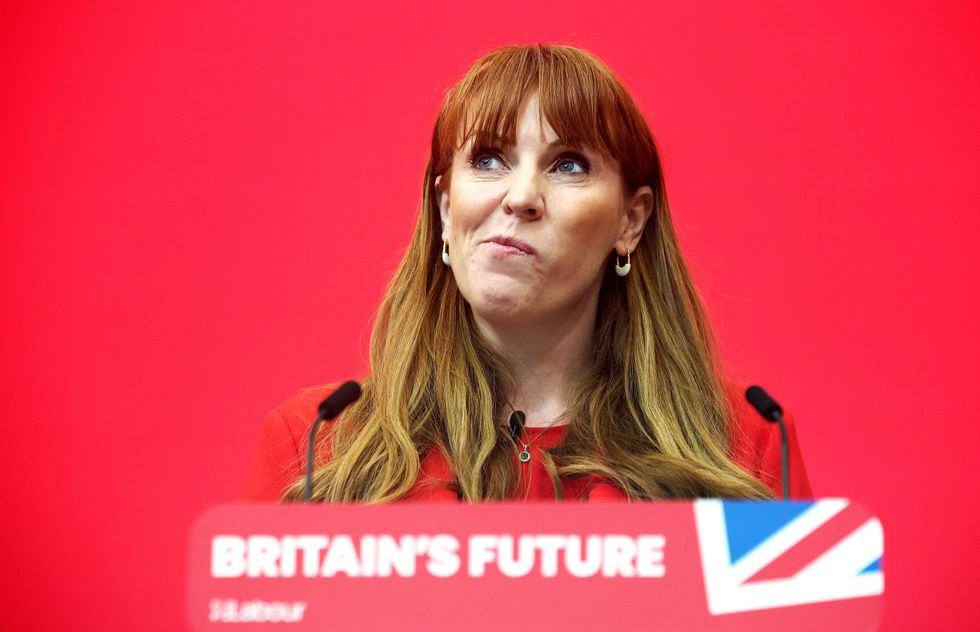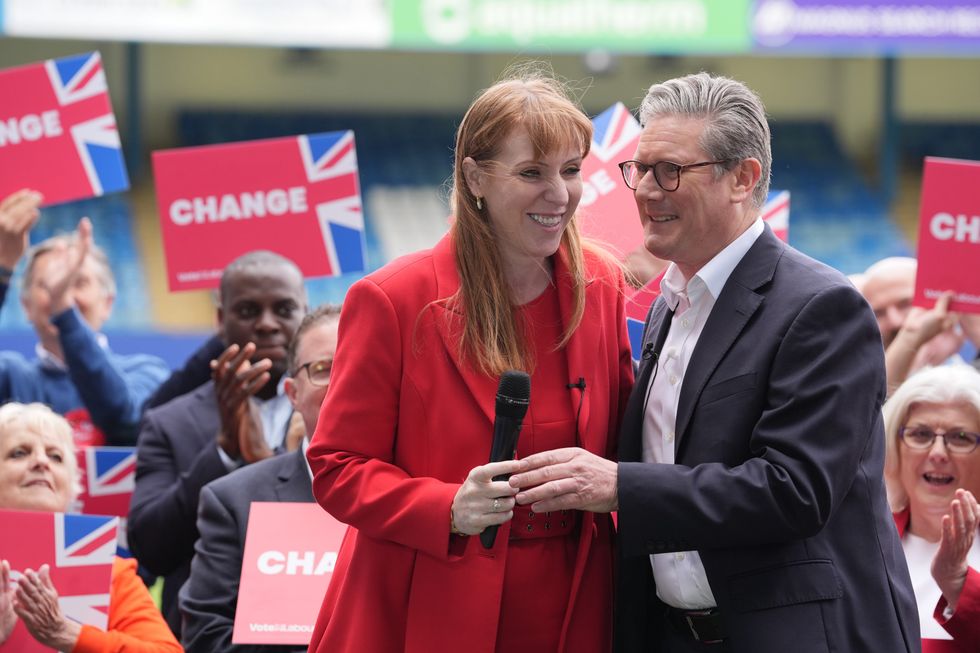Nigel Farage's biggest threat REVEALED...and it's not who you think it is

WATCH: Nigel Farage takes the fight to Labour as Reform UK leader set to commit to scrapping two-child benefit cap and fully reinstate winter fuel payment
|GB News

The politician's economic focus would place Nigel Farage in a 'difficult position with his own supporters'
Don't Miss
Most Read
Trending on GB News
As Sir Keir Starmer shifts rightward on social issues following Nigel Farage's strong showing in local elections, a bold alternative strategy is emerging from within the Labour Government.
Deputy Prime Minister Angela Rayner has proposed a different approach to countering Reform UK's growing influence.
Rather than competing on Farage's preferred battleground of immigration and crime, Rayner suggests forcing the Reform leader onto economic territory more favourable to Labour.
Her strategy, outlined in a recent memo reported by The Telegraph, aims to position Labour as the defender of ordinary working people while exposing potential fractures within Reform's diverse voter coalition.

As Sir Keir Starmer shifts rightward on social issues following Nigel Farage's strong showing in local elections, a bold alternative strategy is emerging from within the Labour Government
|Getty
The approach represents a fascinating tactical divergence within the Government's response to the Farage phenomenon, according to founding partner of policy research agency Public First, James Frayne.
Rayner's memo outlines radical proposals to raise tax revenue by targeting the middle class and wealthy.
Her suggestions include restricting child benefits and cutting tax allowances for higher earners.
These measures would potentially negate the need for further spending reductions, particularly as cuts to benefits like winter fuel payments have been blamed internally for Labour's recent electoral setbacks.
While the memo claimed these policies would resonate with voters, this may be overstated.
Child benefit cuts would likely be unpopular, especially among women, and many proposals might be too technical to register with average voters.
Nevertheless, the strategy would position Labour as the "reliable defender of the least well off" for the first time since taking power.
LATEST DEVELOPMENTS:
Crucially, Rayner's economic focus would place Farage in a difficult position with his own supporters, says Frayne.
He would be forced to explain why his free-market, low-tax approach would benefit working-class voters who form a substantial part of Reform's base.
Many of these supporters might instinctively favour Rayner's more interventionist economic policies.
This exposes what the Frayne describes as "massive ideological divisions at the heart of Reform's voter base" that have yet to be exploited by mainstream parties.
While Reform can potentially make a case for free-market economics, there's no denying the simple appeal of big-state policies to many voters in provincial England.
Starmer's current approach plays directly into Reform's strengths rather than exploiting its weaknesses.
By focusing on immigration, the Prime Minister invites comparisons to his failure on small boats, where Farage can easily claim superiority.
On crime, Reform will highlight early prison releases for serious offenders.
Even on "woke" issues, Starmer's public sector remains entrenched in political correctness despite his rhetoric.

Deputy Prime Minister Angela Rayner has proposed a different approach to countering Reform UK's growing influence
| GETTYRayner's economic strategy, by contrast, would shift the battlefield entirely.
It would force Reform to defend positions that might alienate significant portions of its support base.
As the leading conservative strategist Frayne notes in The Telegraph, variations of Rayner's approach "makes more electoral sense than Starmer's" precisely because it avoids fighting on territory where Reform holds unassailable advantages.
The historical context for this strategic divide dates back to Nigel Farage's UKIP days.
The recent passing of Patrick O'Flynn, a former UKIP MEP and Farage colleague, highlights this tension.
O'Flynn reportedly split with Farage partly because he believed a left-leaning economic approach would better resonate with provincial voters.
This ideological fault line remains largely unexploited in Reform UK.

Angela Rayner's economic focus would place Nigel Farage in a difficult position with his own supporters, says Frayne
| PAFarage is "desperate to stop the next election being fought on issues where Reform is divided" - particularly economic policy and the NHS.
Labour strategists recognise they "have no choice but to try to change the game."
Rayner herself faces popularity challenges since entering Government, with the discipline of office not suiting her straightforward style.
Yet her economic strategy could potentially repair her connection with ordinary voters that flourished during Labour's opposition years.
The memo has reportedly secured "major support within the party" despite its controversial elements.
For maximum effectiveness, Rayner would need to moderate the more extreme aspects of her approach to appeal to a broader audience.
Nevertheless, the fundamental insight remains valid - her economic strategy would "keep Farage up at night with worry," while Starmer's current approach merely has the Reform leader "relishing every day of battle."
More From GB News










